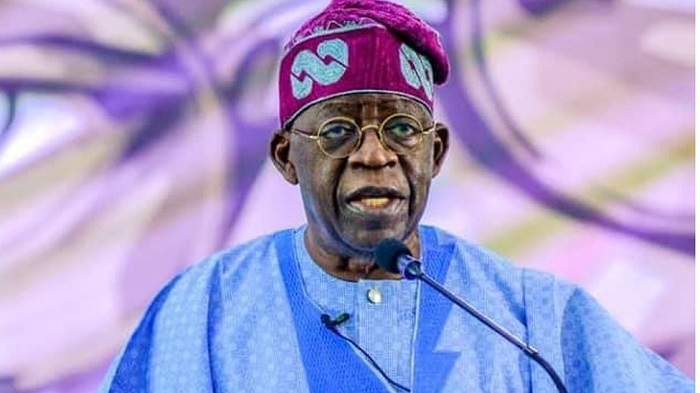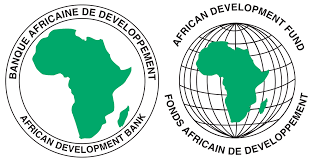Can President elect Tinubu Solve Nigeria’s Perennial “Restructuring” Problem


If you have spent time on Nigerian social media during the last year and a half leading up to the 2023 elections (Clubhouse and Twitter are favorites among young people within country and diaspora), a big buzz word in the political discourse has been RESTRUCTURING. However, the meaning can vary depending on whom you engage.
“Restructuring” can range from opening avenues for state and local governments to access more autonomy within the confines of the current constitutional order, to breaking Nigeria’s subnational state system and returning to colonial organization along four regions, and even up to the complete dissolution of Nigeria as a sovereign state. In this piece, I probe the different meanings of “restructuring” in the Nigerian context, while considering implications for sociopolitical and institutional organization. I also explore how the leading presidential candidates approached this debate in their recent campaigns.
The battle over restructuring
Both (former) Vice President Atiku Abubaker and (former) Governor of Anambra State Peter Obi shared their plans for “restructuring,” during the lead up to the election. In fact, many young Nigerians specifically saw a potential Obi presidency as an opportunity to make “restructuring” a reality. This, in part, explains Obi supporters’ great disappointment with INEC’s certification of Asiwaju Bola Tinubu as president-elect.
Though many are concerned that with Obi’s loss the prospects for genuine change have gone with him, Tinubu may be better placed to facilitate the “restructuring” they crave. In his previous political life as Governor of Lagos State, Tinubu demonstrated willingness to challenge the status quo of Nigeria’s pseudo-federal system and did so with some success.
Despite the popularity of “restructuring” as a buzz word in contemporary social media spaces, the term and its connotations have been around long before. In the aftermath of the annulment of MKO Abiola’s 1993 presidential win in what has been called Nigeria’s freest and fairest election, both the National Democratic Coalition (NADECO) and Afenifere (the Pan-Yoruba cultural movement formed by Chief Obafemi Awolowo, that inherited Action Group’s political mandate) emerged as dominant voices in civil society. In particular, they pressed for the end to military rule, institutional reorganization, and democratization of the relationships between national and subnational political units.
Restructuring as renegotiation
This “restructuring” would also include a renegotiation of power distribution between Nigeria’s many ethnic groups (most especially minority groups outside of the “big 3”—Hausa, Igbo, Yoruba), as well as the sharing of the fruits of Nigeria’s resource wealth.
Also Read: Nigeria’s Debt is Affordable, Egie Akpata, Investment Banker
According to a survey of Nigerian daily newspapers conducted by Farayibi (2019), the legacy of NADECO’s and Afenifere’s demands for institutional reorganization is most prominent in the contemporary “restructuring” debate. In this vein, “restructuring” means for Nigeria to embrace “true federalism” by devolving political autonomy to state and local governments. Nigeria’s federal structure was first adopted in 1954 at the tail-end of the British colonial government.
During the early postcolonial period, this meant establishing four subnational entities—the Northern, Western, Midwestern, and Eastern Regions—that enjoyed significant autonomy from the national government. Both levels held their own constitutions, executive, legislative, and judicial authority; however, fiscal power was concentrated at the regional level via agricultural marketing boards.
Since agriculture represented Nigeria’s primary economic activity, marketing boards generated large amounts of foreign exchange (cash crop exports represented 70% of Nigeria’s total foreign exchange; 70% of the Nigerian workforce was employed in the agricultural sector). In this arrangement, regions retained 50% of its revenues; therefore, Regional Premiers (subnational chief executives) leveraged this income to engage in infrastructural and social development (Elemo 2018; Ngangah 2020).
Two occurrences brought this arrangement to an end: (1) the onset of military government brought about by the 1966 coup/countercoup and further extended in response to the Eastern Region’s attempt to secede in the Biafran Civil War, and (2) the dominance of petroleum in Nigeria’s economy. Though the Eastern Region was unsuccessful in its challenge, following the civil war, successive military governments moved to minimize subnational authority. The regional system was scrapped, and, over time, Nigeria expanded from 4 regions to 36 states.
The military government also paid particular attention to states’ fiscal independence. At first, control of marketing boards shifted to the central government (Diamond 1988; Ihonvbere and Shaw 1998); however, as Nigeria enjoyed a petroleum boom, the rules of oil revenue allocation were amended so that the national government took the bulk of these earnings. Since the 1969 Petroleum Decree, all revenues derived from the production, exploration, prospecting, or searching for petroleum would accrue directly to the federal government. From there, the funds would be distributed between the three levels of government, with the majority (55%) accruing to the national government.
The federal façade
This heritage is enshrined in the 1999 Constitution that governs Nigeria’s (current) Fourth Republic. In fact, many would describe Nigeria as a unitary system with a federal façade. Most of Nigeria’s state and local governments have little financial independence outside of their monthly federal allocation from oil revenue. This translates to a lack of political autonomy to pursue state/local led policy agendas and development. Therefore, in this context, “restructuring” would renegotiate the boundaries of national and subnational power, such that state and local governments can set their own policy priorities and mobilize revenue to those ends, outside of the purview of the national government.
In Nigeria’s South-South geopolitical zone, the “restructuring” renegotiation has an added dimension of resource control. For decades, scholars, journalists, and NGOs have documented the exploitation of the Niger Delta. Though this region houses the source of Nigeria’s petroleum wealth, reinvestment in Niger Delta communities to curb the consequences of environmental degradation has been dubious.
Furthermore, the violent repression of the Movement for the Survival of the Ogoni People in Rivers State by the military government in the 1990s proves instructive. Nigeria’s national government has taken some steps to make amends for past mistakes: for example, in 2002, the derivation principle was reestablished, pledging 13% of oil revenue directly to oil producing states. Then, in 2000, President Olusegun Obasanjo established the Niger Delta Development Commission (NDDC), a federal government agency charged with promoting socioeconomic and ecological development in the region. Recent and ongoing accusations of fraud and corruption among NDDC commissioners do not inspire confidence and only fuel calls for increased resource control in the Niger Delta’s local communities.
Given that the ethnolinguistic groups indigenous to the Niger Delta are numerical minorities, “restructuring” and resource control would also include challenging the dominance of Hausa, Igbo, and Yoruba elites at the national level. Despite calls for secession from groups like Movement for the Emancipation of the Niger Delta (MEND) and Indigenous People of Biafra (IPOB) (who have regularly demonstrated their willingness to leverage violence in their pursuits), federalism could allow for preservation of Nigeria’s union by granting more autonomy to local communities to manage their affairs and resources.
Unity in difference?
Interestingly, even before his 2023 election run, (former) Vice President Atiku Abubaker claimed “restructuring” as a priority. In 2016, during the launch of the book We are all Biafrans by journalist Chido Onumah, Atiku, chair of the event, remarked:
… Agitations by many right-thinking Nigerians call for a restructuring and renewal of our federation to make it less centralized, less suffocating and less dictatorial in the affairs of our country’s constituent units and localities. As some of you may know, I have for a long time advocated the need to restructure our federation. Our current structure and the practices have been a major impediment to the economic and political development of our country… And the rising tide of agitations, some militant and violent, require a reset in our relationships as a united nation.
More recently, as PDP’s flagbearer, Atiku reiterated his commitment to “restructuring” at a campaign rally in Bayelsa State on January 23, 2023:
… we will give you more resources and more powers to deal with your governance, so you don’t go begging the Federal Government to come and do things for you when you are actually producing the resources of the country, so we will devolve more powers and resources to the Niger Delta.
We see that Abubaker would seek to maintain the integrity of Nigeria as a sovereign state; however, he described “restructuring” as necessary to preserving that union Changes to Nigeria’s institutional, financial, and resource management status quo would facilitate good governance and economic development. In turn, Atiku argued that these positive dividends would quell militant movements, especially in the Niger Delta. Apparently, the former VP was so committed to this campaign promise that he pledged, if elected, to complete 80% of the restructuring Nigeria needs within his first six months in office!
Creating a new Nigeria?
Similarly, in Peter Obi’s manifesto (“Our Pact with Nigerians: Creating a New Nigeria”), the third of seven priorities was to “restructure the polity through effective legal and institutional reforms to entrench the rule of law, aggressively fight corruption, reduce cost of governance, and establish an honest and efficient civil service.” This commitment had both institutional and fiscal dimensions, which included a review of the Nigerian Constitution’s “Exclusive List” that details the powers exclusive to the federal government and moving items to the “Concurrent List” of responsibilities shared with State governments.
Also Read: Shall we restructure the public sector?,
In terms of the fiscal dimension, Obi pledged to reduce dependence on oil revenue at all levels by shifting to states’ internal revenue generation via taxation and development of non-oil sectors:
…This means restructuring the economic framework. It will allow the states to leverage their comparative advantages and contribute to national development thus, reducing states’ dependence on the federation account to fund developmental projects, and empower them to become net contributors to the national economy …
With that said, despite Atiku’s and Obi’s rhetoric, of the three presidential frontrunners, it has been Asiwaju Bola Tinubu – now president-elect – who has perhaps done the most to actively challenge the political and fiscal dominance of the national government in an entrenched legal battle with (then) President Obasanjo when he was Governor of Lagos State. In 2003, Tinubu created an additional 37 local government councils (LGCs) in Lagos State, adding to the 20 that already existed. Tinubu’s administration argued that this was necessary to better govern Lagos’ 5.8 million residents. (In comparison, Kano State had a population of 5.7 million and 44 local governments.)
However, Obasanjo rebuffed the move as unconstitutional and demanded that Lagos revert back to the original 20. As part of the monthly federal allocation of petroleum revenue, state governments are meant to receive 25% of oil income, while LGCs receive 20%. When Tinubu maintained the new 37 LGCs (some of which went on to hold elections to fill councillor seats) the federal government withheld Lagos’ LGC monthly allocations for a year.
Tinubu’s two-pronged response reverberates in Lagos’ political economy until today: first, Tinubu challenged Obasanjo and the Federal Accountant-General in Nigeria’s Supreme Court, which ultimately sided with Lagos State and ordered the immediate release of 25 billion Naira of LGC funds that were in arrears. Second, to make up for the income gap, Tinubu launched a series of reforms to the Lagos State Internal Revenue Service (LIRS) that empowered the agency to streamline tax collection and engage in civic education of Lagosians about the role of taxation in society and the benefits ordinary people would derive when internally generated revenue was regularized.
Despite the resolution of the conflict between Tinubu and Obasanjo, successive governors have followed Tinubu’s model. Since 2004, Lagos has been able to systematically generate over 50% of its revenue from taxes on citizens (in many years, it’s closer to 75%)—for example, in 2020, this translated to 4.2 trillion Naira ($9.2 billion USD). Furthermore, Lagos State via the Lagos Inland Revenue Service has repeatedly used the courts to reaffirm their right to expand their tax net, despite challenges from the federal government and private corporations. Fiscal autonomy continues to facilitate the Lagos State government’s ability to set their own policy agenda and socioeconomic development strategy.
Tinubu’s past success in taking on the national government and, as a result, expanding Lagos’ political and fiscal autonomy, was part of why supporters of his would-be presidency firmly defended his record, despite criticisms of his age and acuity. They argued that, if “restructuring” is what Nigerians clamour for, Asiwaju established the template at the state level and is ready to bring that experience to the Federation, as a whole.
Challenges to restructuring
With that said, Tinubu’s “restructuring” at the national level or replicating what he achieved in Lagos in other states could face serious obstacles. For example, it is unlikely that a President Tinubu will enjoy the same latitude and autonomy at the national level as he experienced in one state. Furthermore, nationally, Tinubu would have to contend with political actors outside of the SouthWest geopolitical zone (e.g. National Assembly members, Governors of other states) who conceptualize “restructuring” and its impact on their interests in different ways.
The “restructuring” debate continues to be consequential for the vitality of Nigeria’s state and democracy. As one of the most culturally diverse countries in the world, “true federalism” has been touted as a critical solution to maintaining Nigeria’s unity. “Restructuring” via power-sharing, devolution of political and fiscal authority, and resource control at state/local level has the real potential to quell conflicts and calls for secession motivated by poor governance, disenfranchisement, and difficulties of socioeconomic development.
Certainly, if Nigeria can make progress, this portends potential breakthroughs for other countries in Africa and beyond where ethnolinguistic groups negotiate the legacies of colonialism and build sustainable nation-states.
Omowumi Olufunmbi Elemo-Kaka (@DrFunmbiEK) Assistant Professor in James Madison College at Michigan State University. She also serves on MSU’s African Studies Center Advisory Board. Her research focuses on intersections of democratization, citizenship, federalism/subnational politics, and public finance in Sub-Saharan Africa.







